Certified organic vineyards are still a small minority in Champagne (only 3.5% of the surface area is classified as organic in 2020), but the trend is there, and it bodes well for the future. Especially since Maison Canard-Duchêne launched its first organic vintage in 2009.

Organic champagne, respect for nature above all
Obtaining the famous organic label involves complying with very strict regulations requiring the winegrower to respect standards and practices. In particular, it prohibits the use of synthetic pesticides and chemical fertilizers but also advocates other natural practices and methods. The objective is to respect living things by using elements such as sulfur, clay, and copper.
Wait three years to be organic
It takes three years for the transition to organic viticulture to be effective. A transition that is all the more meritorious since Champagne is exposed to an oceanic climate with a continental tendency leading to a high humidity level: the grapes are threatened with rotting by fungi. In organic, in the event of a difficult year, yields drop. They can be 20% lower than in conventional viticulture. Hence a higher price, even if it is not the only reason.
P181, Organic champagne from Canard Duchêne

In 2009, Laurent Fédou, Cellar Master, launched the first organic cuvée signed Canard-Duchêne. That was 12 years ago and the bet was daring, the use of organic was still very little established in mentalities. This cuvée today named P181 is the fruit of 9 hectares of own vineyards cultivated and certified in Organic Agriculture by Ecocert. It takes its name from the 7-hectare plot registered ZE 181 located in the commune of Verneuil, whose hillsides are exposed due south.
A blend of the three Champagne grape varieties (Pinot Noir, Pinot Blanc, Chardonnay), this cuvée combines complexity and power. Dosed in Extra-brut, therefore very little sugar, it is as close as possible to the original product with an aromatic potential increased tenfold by a first fermentation of the Chardonnays in oak barrels. "P181 is a subtle, airy and expressive champagne of the terroir", according to Laurent Fédou, Cellar Master of the House. This cuvée accompanies seafood products with great elegance, such as a fillet of John Dory or a sea bream tartare.
Would you like to taste it?




